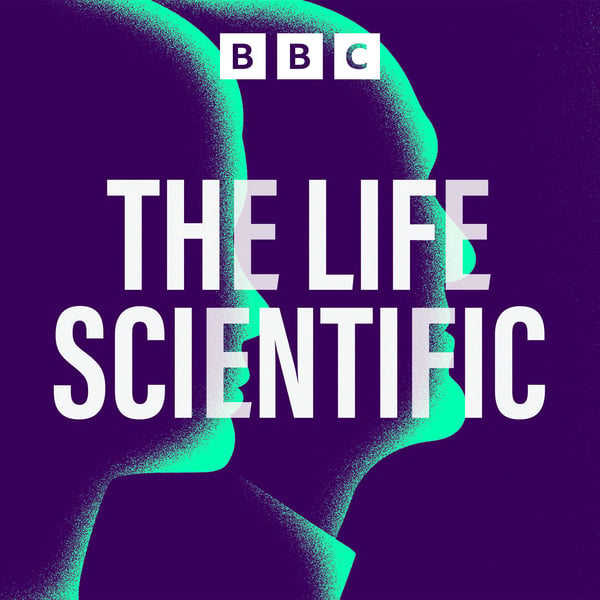Gideon Henderson on climate ‘clocks’ and dating ice ages
The Life Scientific
BBC
4.6 • 1.4K Ratings
🗓️ 15 August 2023
⏱️ 28 minutes
🧾️ Download transcript
Summary
Transcript
Click on a timestamp to play from that location
| 0:00.0 | Hello and welcome to the podcast edition of the Life Scientific. I'm Jamal Kalili and this is the show where I get to talk with some of the world's leading scientists and you get to find out what drives them. I hope you enjoy this episode. |
| 0:13.0 | Hello, we're used to hearing the stories of scientists who study the world as it is now. But what about the scientific study of the past? What can the past tell us about our future? |
| 0:24.0 | My guest today is a geochemist whose research focuses on trying to understand climate change by looking at what was happening on our planet thousands of years ago. |
| 0:34.0 | Gideon Henderson's work has taken him all around the world and to the remotest of places, the deepest oceans, the darkest caves, where he collects samples that contain radioactive isotopes that he can use as clocks to date past ice ages and other major climate events. |
| 0:52.0 | As Professor of Earth Sciences at the University of Oxford, his work deals with some big and important questions like humans impact on the planet's carbon cycle and therefore its climate, the health of our oceans and finding new ways to remove greenhouse gases from the atmosphere. |
| 1:09.0 | As the Chief Scientific Advisor at the Department for Environment, Food and Rural Affairs, Deffra, he also very much works on the present at the intersection between the worlds of research and science policy. |
| 1:21.0 | When he's not in Whitehall or his research lab in Oxford, he can be found on a boat in the South Atlantic or in a cave in Siberia. But I'm pleased to say he's joined me here today in the comfort of a BBC studio. Professor Gideon Henderson, welcome to the Life Scientific. |
| 1:34.0 | Thank you for having me on, it's lovely to be here. |
| 1:36.0 | Now, I imagine very few listeners would have been to some of the far flung places you've experienced in your field work. Could you give me an example somewhere that really stands out for you? |
| 1:45.0 | It's a tough question, you did warn me to start with that question. I gave it a bit of thought. I'm going to use the example of Siberia and we work in the middle of nowhere, so we fly into a cuckst. |
| 1:54.0 | We drive along a road, increasingly a gravel road into the middle of nowhere and then turn left off the road, into the tundra and into the forest. |
| 2:02.0 | And live amongst the beach trees, cooking our borscht around the fire during the night and in the daytime go into the caves that we're using to reconstruct the past climate. |
| 2:12.0 | In this case, it's beautiful in their own right, full of static mites. But they're also an archive of the past and that sort of sense of deep history around you in that beautiful setting is very relevant. |
| 2:23.0 | You have to get to these places, you have to be there. |
| 2:27.0 | You can only really put the samples that you work on in the lab into context if you go and see where those natural samples have come from in the cave or in the ocean or in the field site. |
| 2:36.0 | And they can be just as stunning as the caves themselves that you're visiting. |
| 2:41.0 | They certainly can. And in the example of stalemites, first of all, I should say we're very careful about what we take from caves because these are grown over hundreds of thousands of years sometimes. |
| 2:50.0 | But when you take them back to the lab and cut them open, they are sometimes exquisite like the layers you get a nice call or like tree rings and capturing the history sometimes over well, certainly over thousands, sometimes tens or hundreds of thousands of years. |
| 3:03.0 | As I mentioned in my introduction, much of your work relates to big themes like climate change. But you think climate change should actually be called something else. |
| 3:12.0 | I think it's actually carbon change, not climate change. And climate, the fact that it has changed, that's the symptom of the fact that we have changed the carbon cycle. Our human behavior has changed the carbon cycle. |
| 3:23.0 | And now we need to change it back again. |
| 3:25.0 | And Gideon, you describe yourself as an empirical scientist. Surely all sciences empirical in some sense that we have to test our descriptions of the world against observations, experimental data. |
... |
Please login to see the full transcript.
Disclaimer: The podcast and artwork embedded on this page are from BBC, and are the property of its owner and not affiliated with or endorsed by Tapesearch.
Generated transcripts are the property of BBC and are distributed freely under the Fair Use doctrine. Transcripts generated by Tapesearch are not guaranteed to be accurate.
Copyright © Tapesearch 2025.

